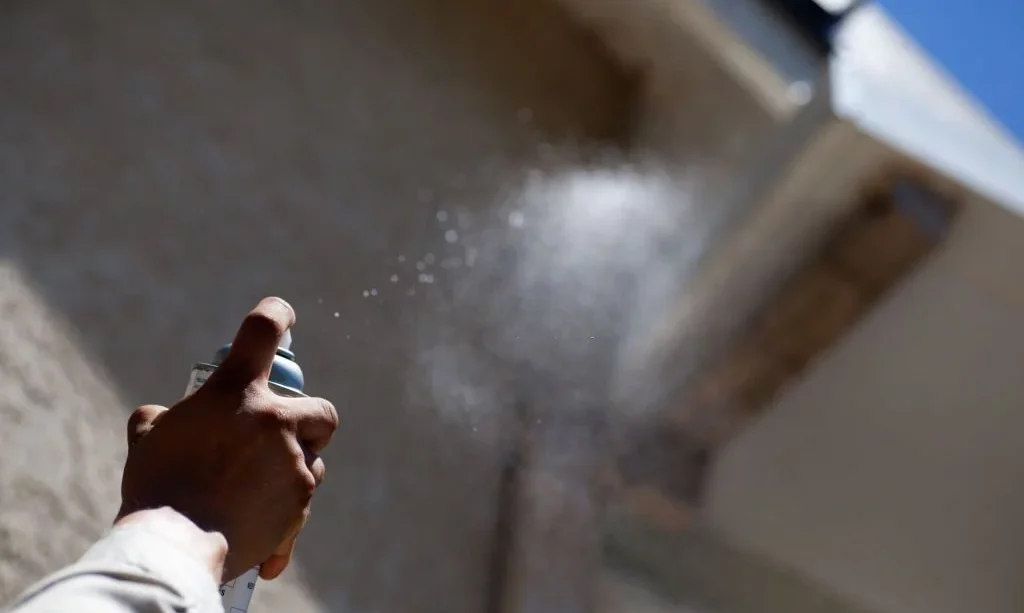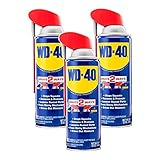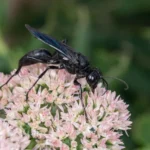Have you ever wondered if WD-40, that trusty can of multipurpose spray found in many households, can be used to tackle wasp problems? When faced with these buzzing insects, it’s natural to search for quick and convenient solutions. In this guide, we’ll explore whether WD-40 is an effective option for dealing with wasps and shed light on its properties and safety considerations.
- DRIVES OUT MOISTURE: Drives out moisture and quickly dries out electrical systems to eliminate moisture-induced short circuits
- CORROSION INHIBITOR: Acts as a corrosion inhibitor to shield against moisture and other corrosive elements to prevent rust
- FREES AND LOOSENS STICKY PARTS: Frees sticky mechanisms, loosens rust-to-metal bonds and helps release stuck, frozen or rusted metal parts
- REMOVES: Removes grease, grime, gunk, gum, tar, sap, super glue, sticker residue, and other sticky stuff from multiple surfaces
- LUBRICATES: Lubricates moving parts such as hinges, wheels, pulleys, rollers, chains, and gears
WD-40 and its Properties
WD-40 is a popular product known for its versatility as a lubricant and penetrating oil. It is made up of a mixture of chemicals and solvents. While it has numerous applications around the house, it’s important to understand that it was not specifically designed or approved as an insecticide.
WD-40’s primary purpose is to lubricate and protect metal surfaces. Its formula is designed to provide lubrication, displace moisture, and offer some degree of corrosion protection. The specific properties of WD-40 may give rise to claims and anecdotes about its effectiveness against wasps.
In the following sections, we’ll explore the effectiveness of WD-40 on wasps, discuss safety considerations, and suggest alternative methods for dealing with these stinging insects. Let’s dive in and separate fact from fiction when it comes to using WD-40 for wasp control.
Effectiveness of WD-40 on Wasps
There are claims and anecdotes suggesting that WD-40 can repel or kill wasps. While some people may have experienced temporary success in deterring wasps with WD-40, it is not a reliable or recommended solution for long-term wasp control.
It’s important to note that WD-40 is not specifically formulated to target or eliminate wasps. Its primary purpose is to provide lubrication and protection for metal surfaces. While it may have some temporary effects on wasps due to its chemical composition, these effects are not guaranteed and may vary depending on the specific circumstances.
Safety Considerations
When it comes to dealing with wasps, safety should always be a top priority. While WD-40 is generally considered safe for typical household applications, it is not designed or approved as an insecticide. Using WD-40 directly on wasp nests or spraying it in close proximity to wasps may agitate them and make them more aggressive.
It’s important to exercise caution and avoid direct contact with wasps whenever possible. If you have a wasp infestation or nest on your property, it’s advisable to seek professional pest control services. They have the expertise and proper equipment to handle wasp nests safely and effectively.
Remember, the safety of yourself and those around you is paramount when dealing with stinging insects like wasps. Opting for proven and appropriate methods for wasp control will help ensure a safer and more successful outcome.
In the next section, we’ll explore alternative methods for dealing with wasps that are specifically designed for their control. Let’s discover reliable options to manage these buzzing insects without compromising safety.
- KILLS ON CONTACT: Hot Shot Wasp and Hornet Killer controls wasps, hornets, yellow jackets, scorpions, mud daubers and tent caterpillars
- UP TO 27 FOOT JET SPRAY: With a jet spray that reaches up to 27 feet, you can stand a safe distance from the nest
- NON-STAINING: This product is non-staining to most home siding depending on age and cleanliness – before using in areas where spray may contact home siding, test in an inconspicuous area and recheck in a few hours
- FOR OUTDOOR USE: Apply at sunset when insects are least active
Alternative Methods for Wasp Control
While WD-40 may not be the best option for long-term wasp control, there are alternative methods you can explore. Here are a few options to consider:
- Commercial Wasp Sprays: Look for insecticide sprays specifically formulated for wasp control. These products are designed to effectively eliminate wasps and their nests. Follow the instructions carefully and take necessary safety precautions when using these sprays.
- Professional Pest Control Services: If you have a significant wasp problem or a large nest on your property, it’s best to seek the assistance of professional pest control services. They have the knowledge, experience, and specialized equipment to handle wasps safely and efficiently.
- Preventive Measures: Take preventive steps to deter wasps from your property. Seal potential entry points, such as cracks and openings in walls or windows, to prevent wasps from gaining access to your home. Keep outdoor garbage cans tightly sealed, as they can attract wasps looking for food sources.
Remember, prevention is key. By addressing the conditions that attract wasps, you can minimize the likelihood of them building nests near your living spaces.
Conclusion
While WD-40 may have temporary effects on wasps, it is not a reliable or recommended solution for long-term wasp control. Safety should always be a priority when dealing with stinging insects like wasps. It is best to explore alternative methods, such as commercial wasp sprays or professional pest control services, to effectively manage and eliminate wasp populations.
By opting for proven and appropriate methods, you can ensure your safety and the successful removal of wasps from your surroundings. Take preventive measures to discourage wasps from establishing nests on your property, and seek professional assistance when dealing with significant wasp infestations.
Remember, when it comes to wasp control, it’s important to prioritize safety and use methods that are specifically designed for effective wasp management.




